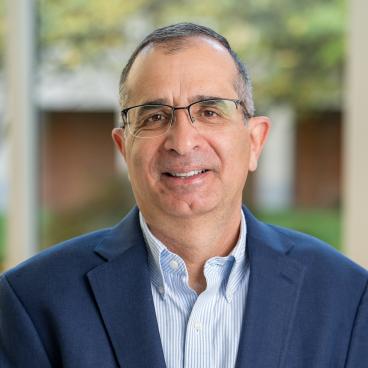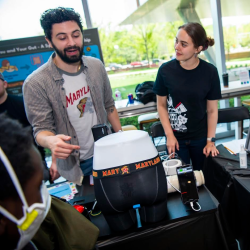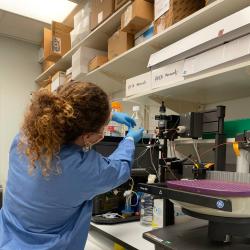The Microbiology, Microbial Pathogenesis and Immunology specialization concentrates on the study of host-pathogen interactions at the molecular and cellular levels. Faculty research programs focus on how microorganisms interact with surfaces, how they survive inside and outside of their hosts, how signals are relayed between the microorganism and the host, and how the host responds to these signals.
Faculty in this area study host-parasite interactions to identify the molecular mechanisms responsible for disease, elucidate the functioning of the host's immune response, examine genetic mechanisms that underlie signal transduction, identify and elucidate the genomic content of pathogens, and explore fundamental properties of viruses. The novelty of this specialization is that students can use bacterial, fungal or viral platforms to study the pathogenic mechanisms that lead to disease and the mechanisms preventing disease in plant and/or animal hosts.
Graduate Program
- Students with research interests in Microbiology, Microbial Pathogenesis and Immunology should apply to the Biological Sciences (BISI) Graduate Program and, specifically, to the Molecular and Cellular Biology (MOCB) concentration area within that program.
- The MOCB concentration area is designed to ensure that students receive a broad background in Cell Biology, Molecular Genetics, and Microbiology, plus advanced training in their area of research.
- Our primary aim is to help students develop the technical laboratory skills and the critical thinking skills necessary for a rewarding career as an independent scientist.
- All first-year Ph.D. students enroll in core courses, participate in lab rotations, and attend seminars.
- The student's advisory committee, in consultation with the student and his/her research advisor, will design a course of study tailored to the student's research plan and career objectives.
- This program will include formal courses, opportunities for critical discussion of the scientific literature through seminar courses and journal clubs, and interactions with the advisory committee.
- Recent MOCB Ph.D. students with interests in Microbiology, Microbial Pathogenesis and Immunology have readily obtained post-doctoral appointments at prestigious research universities, tenure-track teaching positions, positions at various government agencies, and jobs with Biotechnology companies.
Graduate Courses in Microbiology, Microbial Pathogenesis and Immunology
- CBMG688D: Cell Biology I, Structure and Function
- CBMG688E: Cell Biology II, Signal Transduction
- CBMG688F: Genetics I, Gene Expression
- CBMG688I: Genetics II
- CBMG688W: Techniques in Microscopy
- CBMG688J: Immunology and Host Defense
- CBMG688L: Microbial Pathogenesis
- CBMG688M: Microbial Genetics
- CBMG688X: Virology Program Course
- CBMG688B: Bioethics
- Current Journal Clubs: Protein Translation; Host-Pathogen Interactions; Virology























